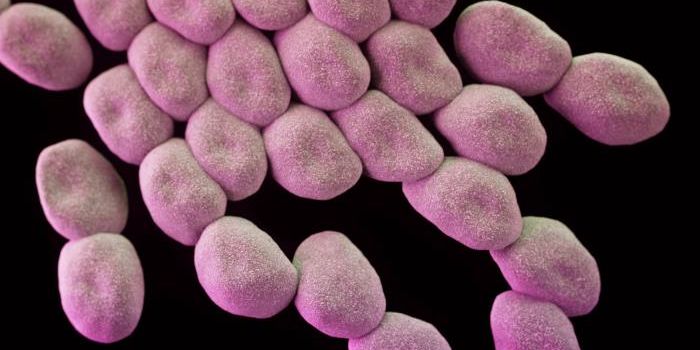Blood-Sucking Worms No Match Against Vaccine Pill
Ancylostoma caninum, a type of hookworm, attached to the intestinal mucosa. Image via Wikimedia Commons.
Hookworms are blood-sucking parasites that get their name from their characteristic hook-shaped heads. For a small worm (roughly the width of a fingernail), hookworms have a massive impact on global health. The parasite spreads through dirty water, infecting tens of millions of people every year.
In a recent scientific breakthrough, Australian researchers have brought forward a hookworm vaccine with tremendous promise. The vaccine was developed by a team led by Istvan Toth from the University of Queensland and can be administered in a tablet, liquid, or powder form. This flexibility is particularly beneficial for deploying the vaccine in under-resourced regions. The treatment has no special cold storage requirements and doesn't need to be given out by trained healthcare personnel.
Most of all, the vaccine is cost-effective, giving it the potential to boost economic growth in disease-endemic geographies without a hefty price tag.
The researchers performed a series of experiments in an animal model of hookworm infection to test the vaccine's efficacy. They pitted their vaccine against another leading experimental vaccine candidate to measure the relative reduction in worms after treatment. The control vaccine was shown to achieve a 30 to 50 percent dip in the number of worms isolated in vaccinated animals (compared to unvaccinated ones).
The team's vaccine performed significantly better. "The UQ-developed vaccine resulted in an impressive 94 percent worm reduction in mice," said Toth. This finding indicates that while being easy to deliver, the new vaccine also sets off a robust, protective immune response.
The vaccine works by igniting antibodies against a key enzyme produced by hookworms that they need to survive, called APR-1. When antibodies block APR-1, hookworms cannot digest their host's blood, ultimately dying from starvation.
Next up, the team plans to perform a suite of follow-on studies to ensure the safety and efficacy of their vaccine candidate before proceeding to test it in a clinical trial setting.









